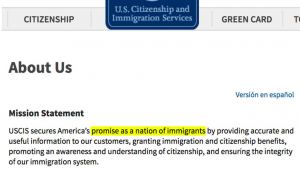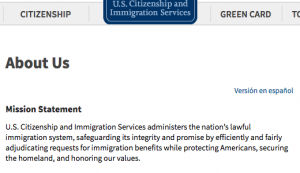After a Federal District Court in California struck down the Administration’s September 5, 2017 rescission of the Deferred Action for Childhood Arrivals program (DACA), the Administration appealed directly to the Supreme Court, trying, in an extraordinary maneuver, to skip over the usual appeal to the 9th Circuit Court of Appeals.
Following briefing and arguments on whether it should hear the appeal without the case first going to the 9th Circuit, today the Supreme Court declined to accept the Administration’s appeal.
That means that if the Administration wants to appeal the lower courts’ decisions (there are now two separate Federal District Courts that have ruled against the Administration), it must proceed first to the appropriate Circuit Courts of Appeal.
It also means the injunctions against the DACA rescission remain in place and USCIS must continue to accept certain DACA renewal applications. Anyone wanting to renew their DACA status should talk ASAP with a competent immigration attorney.
What is next? The government may appeal to the proper Circuit Courts of Appeal. Or the Administration could decide to again announce that it will rescind DACA, and provide a different rationale that will stand up in court (the DACA rescission was struck down because the courts determined the rescission was based on flawed legal reasoning). It will be interesting to see what the Administration decides to do.
In the meantime, DACA holders need certainty and only legislation giving them a path to permanent residency will provide that. We must continue to work for passage of the Dream Act or another durable solution for DACA/Dreamers.



